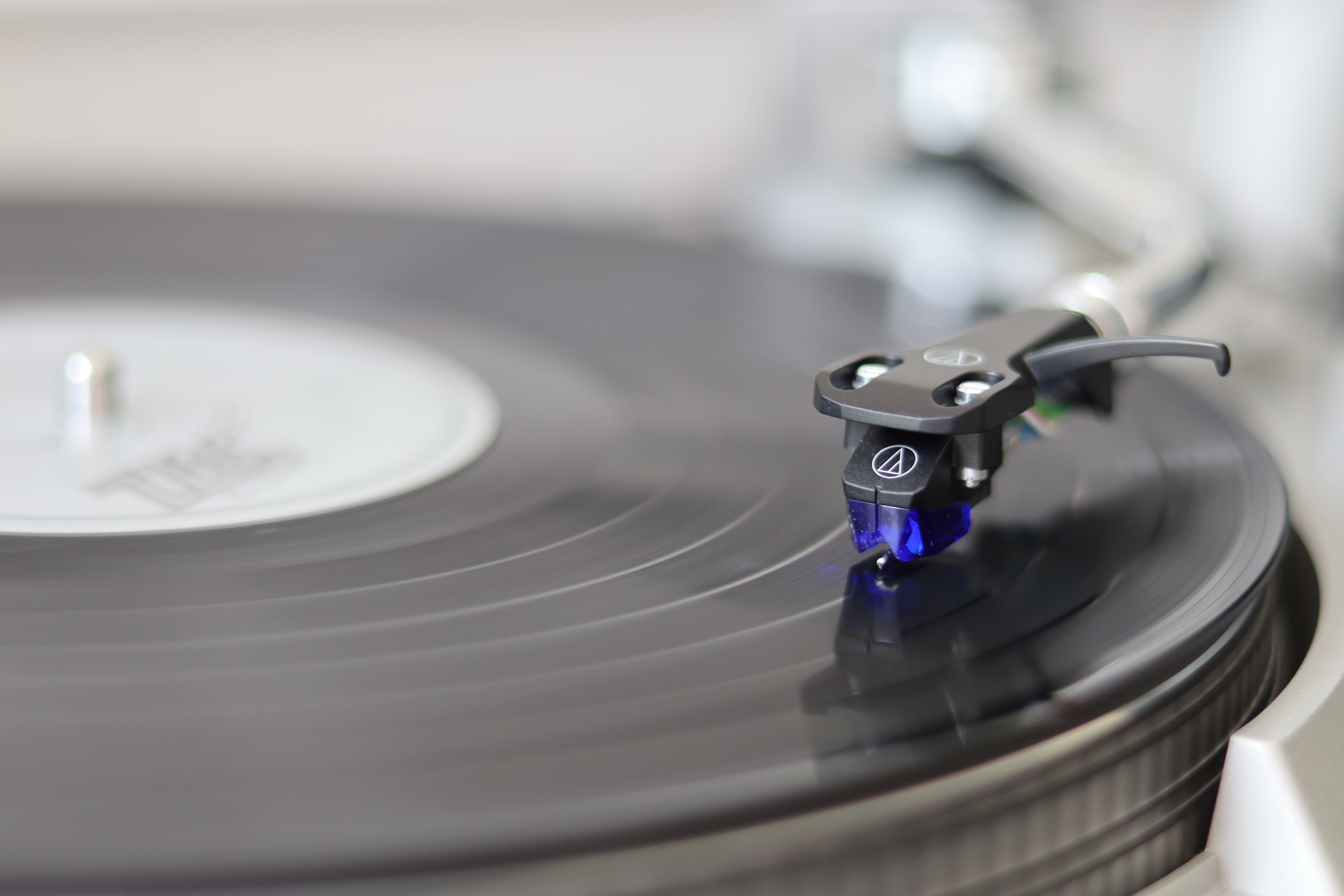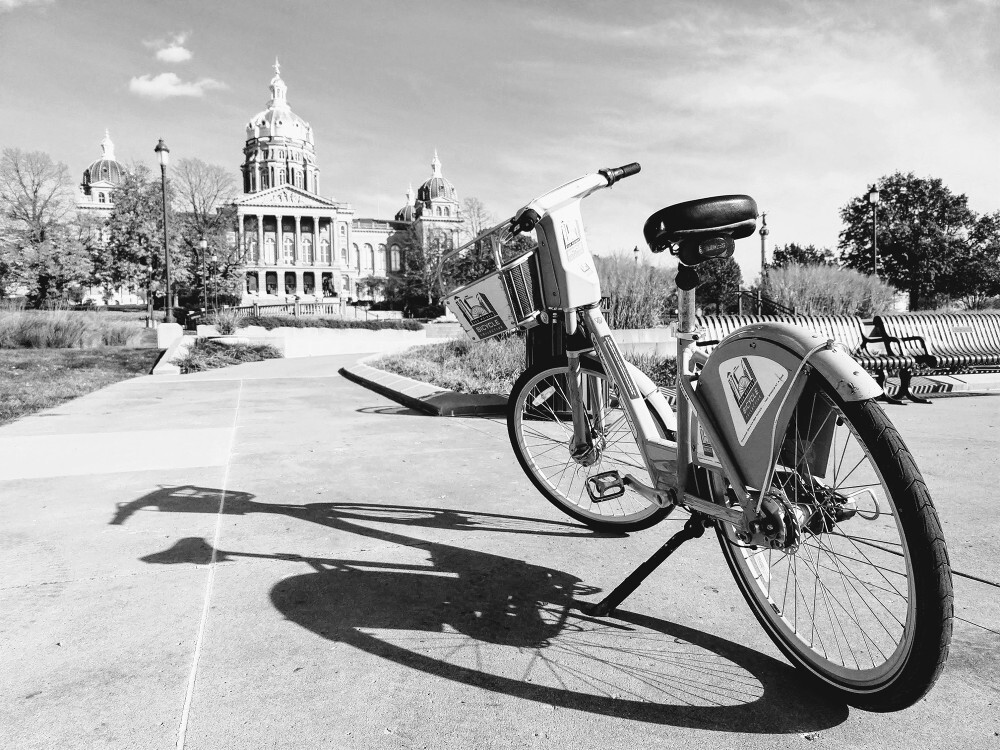Will it still work in 50 years?
06 April 2025

Back when I was 14, my Dad gave me his old turntable, a Technics SL-3200. This line of turntables was produced from 1978 to 1980, so that means my turntable must be between 45 to 47 years old. I still use that turntable nearly every day, and I expect it to continue working for years to come. As I write this blog post, I'm listening to a Duke Ellington Time Life collection that was pressed in 1978. I have Beatles LPs that are even older. Aside from regular stylus replacements, this machine requires minimal maintenance, and it works exactly the same as when my dad purchased it nearly 50 years ago. How many things are there that we buy today that we can say the same thing about? Out of your previous ten major purchases, how many of them can you reasonably believe will be fully functional half a century in the future?
This is something that I've been considering with every purchase I've been making. Critiques of our throw-away society have been written about ad nauseam, and I don't believe that I will have anything new to add to that debate. What I can say, however, is that thinking more deeply about this old turntable that I listen to every day got me to consider my spending habits more thoughtfully. While I am deeply concerned about the waste of resources planned obsolescence has led to, a less addressed issue is the loss of knowledge and information that comes along with it. Think of the books on the bookshelves in the picture below. This is a photograph I took of The State Law Library at the Iowa Capitol Building. Some of these books are at least as old as the State of Iowa. Some even older. We have seen that even delicate paper books have a remarkable lifespan. Original Gutenberg bibles from the 1450s are still just as legible today as they were nearly 600 years ago. In this digital age, how much of our information will still be available 600 years in the future? How many things will be lost to bit rot over the centuries? How many of the Kindle ebooks that you purchased will be readable by future civilizations 600 years into the future? I'm going to wager that it will be 0.
A lot of what we know about past civilizations came from the records that ordinary people left behind. Many of the recordings of ancient Mesopotamian writings have been receipts and childrens' schoolwork. Relics of our own civilization will be lost to time as hard drives fail and online services go out of business. No individual company lasts forever. What will happen to all of our family photos when Meta/Facebook eventually goes out of business? I suspect that these things will simply be lost to time.
The environmental impact of our purchases is another matter. Like I said earlier, many works have been written to bring attention to this, so I will leave this research as an exercise for the reader.
This brings me back to my original point. Lately, when I make a purchase, I consider to myself:
If the answer is no, I then ask myself How much does that matter?. While this line of thinking did not stop me from buying an Apple TV 4k a few days ago, it does influence my purchasing decisions in other ways. For one, I never buy ebooks. I will never judge anyone who does buy ebooks. They are clearly a very convenient way to read and organize massive collections of books, and are very useful for those who travel often or those who live in smaller homes where space can be at a premium. I do, however, think that it is good to consider my premise above. If I buy this ebook, will I still be able to read it in 50 years? The answer is probably no. You may be ok with that. That may be an acceptable trade off for you. But does that thought make you feel good about this purchase? Does the ephemeral nature of our rent everything – own nothing society sit well with you? This is a personal philosophical question to ask oneself, and no one can answer it for you. I, however, have found that when I am about to purchase something, and I ask myself: If I buy this thing, will it still work in 50 years? I often reconsider the purchase, and instead find a more durable option. I buy many books; more than I even read, to my wife's dismay. I can rest assured though, that this collection of books that I amass, from fiction to math text books will be just as usable and just as useful 50 years from now. If there is a society level collapse, which has happened many times throughout history, there is hope that future generations might one day stumble upon my Thomas Calculus textbook, and relearn Stoke's theorem without needing to recreate all of Real Analysis from scratch. With many people owning durable physical artifacts of our collective human knowledge, there's at least a chance for future societies regaining the knowledge that inevitably gets lost to time. Going back to ebooks, as we have seen ironically with George Orwell's 1984 being deleted from people's kindles, ebooks will not last as long as paper books. Any backups of ebooks will only be as durable as the hard drives they are stored on, which have an average lifespan of 5 years. Make sure you backup your backups... also bit rot is a concern, so use ZFS for data integrity... and make sure you test that you can restore from your backups ... and make sure you have an off-site backup in case your house burns down ... and make sure your off-site backup is far enough away from your primary backup in case a tornado/wild fire/hurricane destroys both your house and the place where your off-site backup is stored. You can see how challenging it can be to ensure the longevity of digital information. While many of the disaster scenarios above also affect analog media such as books, a book that has been printed with thousands of copies and distributed globably into thousands of households has a lot better chances at lasting centuries than an ebook stored on Amazon data center servers. AWS has remarkable durability, and S3 is an amazing service, but centralization of data can't hold a candle to the brute force staying power of many redundant copies of paper books all over the world.
To bring it back to my turntable, I fully recognize and understand that digital music recordings are capable of having identical sound quality to analog music recordings. This is a mathematical fact, so there is no debate over whether digital or analog music is better. Fundamentally, they can be exactly the same — see Nyquist-Shannon sampling theorem for the proof — but a digital recording will be consistent over time, while an analog recording will decay over time. However, one can argue over whether digital recordings will outlast analog. I don't know the answer to this, but I think that the redundancy of having both will be the best way to keep our music lasting into the future. Old CDs degrade over time, and eventually when enough information on the disk has oxidized away, the CD will be completely unplayable. At the same time, we have clay pots from 7,000 years ago that can be "played" as if they were LP records. I have LPs from the 1960s and onward that I can listen to today. I don't think that many CDs will be playable for that long of a time. A vinyl record that is used and stored properly can last for a very long time. And if a future civilization level collapse happens, it's possible that these music recordings can be listened to again in the future. All you really need to play a vinyl record is a sewing needle and a paper cone. Seriously, drag a needle attached to a paper cone along a record, and if you do it just right, you will hear the music. CD players on the other hand are remarkably complex in comparison, and would be orders of magnitude more difficult to build from scratch than a turntable.
Even when it comes to our movies and TV shows, we are seeing old film recordings that are being encoded into new 4k video releases. At the same time, old digital video recordings that were shot in 480p are stuck in 480p forever.
But what if we want to think of just ourselves and the here and now? I still think that this is a good question to ask for our every day lives. How many times do we end up re-buying the same things over and over again just because it isn't durable? For example, I used to buy cheap suits and blazers that would last me for only a few years before they became so worn out, I would feel like I'm dressing down if I wear them. I recently bought a Harris Tweed blazer that I wear to weddings, and with gentle use, I fully expect this piece of clothing to last me for the rest of my life. It costs a little more than the mass produced clothes that are everywhere today, but I expect that I will pay less in the long run by having a very durable piece of clothing.
This line of thinking is not intended to be dogmatic, but I think it is a reasonable question to ask yourself before making a purchase, Will it still work in 50 years? Regardless of the answer to this question, you may find yourself making different decisions with how you spend your money having asked it, and I think we will all be much happier if we are more mindful about our purchases.
About

This blog is about whatever I find interesting at this very moment. I'll post how-to articles on occasion and various lessons that I've learned in my career.
Me
I am a software developer from Des Moines Iowa. I graduated from the University of Iowa with a B.S. in Computer Science.
I am interested in math, compilers, and interpreters, and I always strive to understand how various systems work from the ground up.
The languages I use most often include
- C
- Rust
- Python
- C++
- Go
I like working in a UNIX or Linux environment.
Posts
- [2025-04-06] Will it still work in 50 years?
- [2023-03-04] Self host a website in 2023
- [2022-07-04] Implementing Math Operations From Scratch
- [2020-10-25] Convolutions - Where Signal Processing and Machine learning Meet
- [2020-05-14] A tale of two servers, or why I shudder at the mention of race conditions
- [2020-05-13] Let's build a Lisp interpreter in Rust! (Part 1 - Lexing)
- [2020-05-10] OpenMP - Static or Dynamic Scheduling?